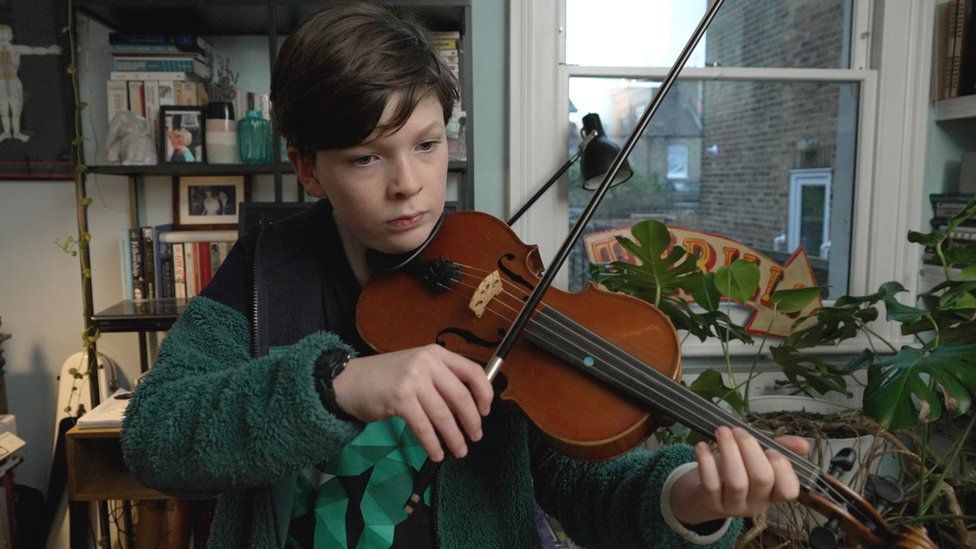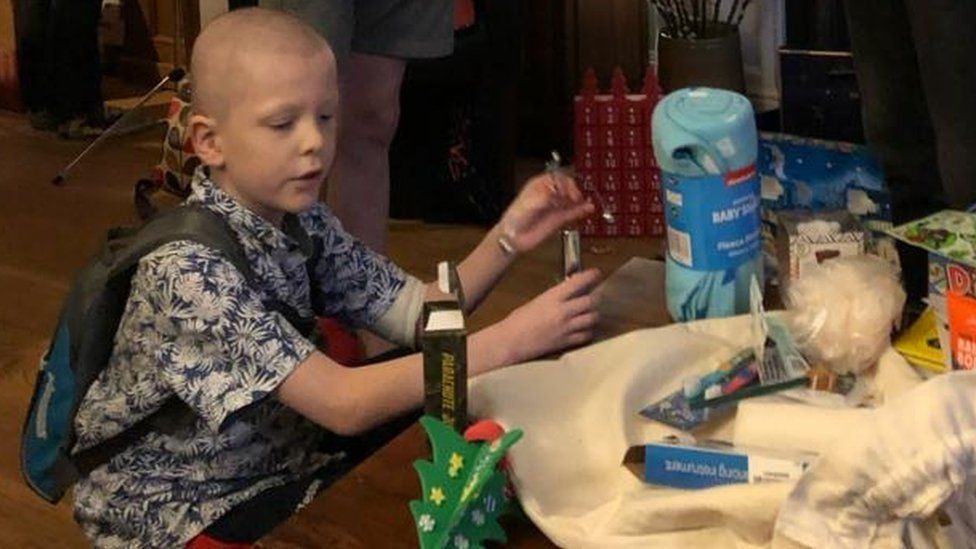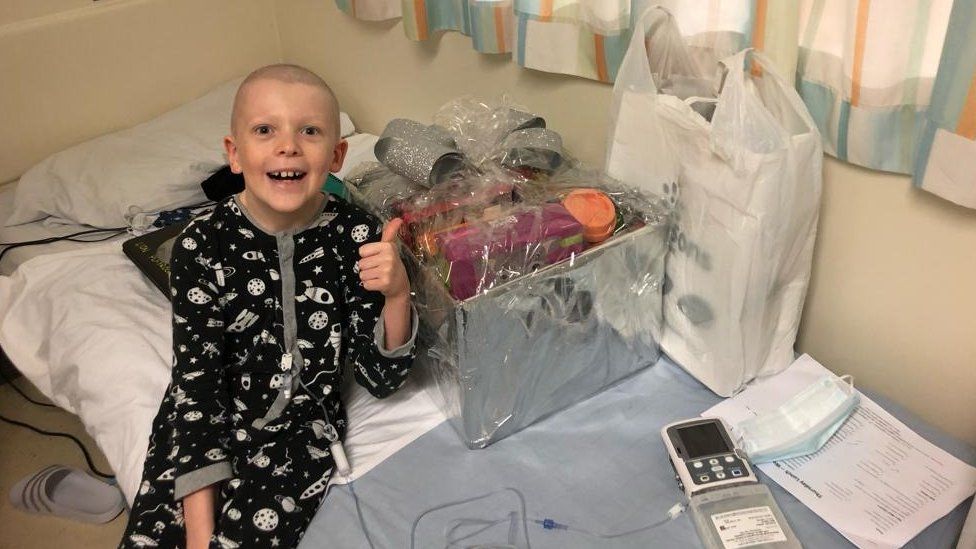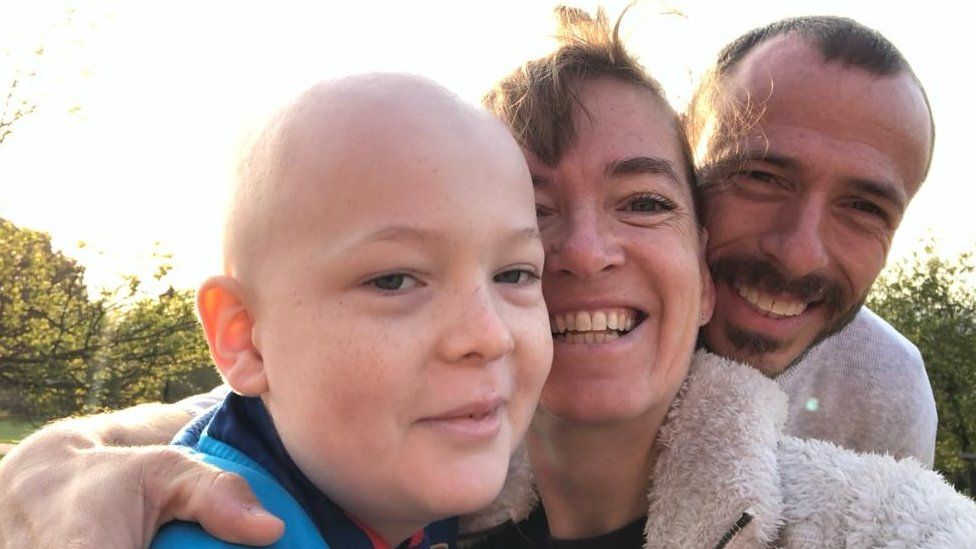News

Exciting new cancer drug kinder than chemotherapy
Exciting new cancer drug kinder than chemotherapy
Some children with cancer are receiving a new type of drug treatment far less toxic than chemotherapy.
Arthur, 11, is one of the first to try it, at London's Great Ormond Street Hospital, for his blood cancer.
His family call the therapy "a little bit of sunshine", since it worked without making Arthur feel much sicker.
And because it could be given on the go, rather than just in hospital, he spent more time at home with his family, enjoying more of what he loves.
He carried it with him in a rucksack - his "blina backpack".
For Arthur, blinatumomab or blina was his only real option after his chemo had failed to clear all of his cancer and had left him very weak.
SANDRINE HEUTZ
Blina is already licensed to treat adults with cancer - and experts hope to show it can safely help children too.
Some 20 centres around the UK are using it off-label for children with B-cell acute lymphoblastic leukaemia (B-ALL).
The drug is an immunotherapy that seeks out cancer cells so the body's own immune system can recognise and destroy them.
And this death hunt is precisely targeted - healthy cells are untouched, unlike with chemo.
SANDRINE HEUTZ
Blina comes in a bag of liquid administered through a thin plastic tube that remains running into a vein in the patient's arm for many months.
A battery-operated pump controls how quickly the drug trickles into the bloodstream - a bag can last days.
All of the kit can be carried in a backpack smaller than an A4 textbook, making it fully portable.
For Arthur, that meant he could do other things - like play on the swings in his local park - while the treatment was happening.
And unlike his intensive chemotherapy, which had stopped working anyway, it did not make him too weak to enjoy his days.
'Constant challenge'
Like other patients on blina, Arthur was given medication to cut the chance of serious reactions or side effects before his infusion started.
At first, he had some bouts of fever and needed to stay in hospital for checks.
But shortly after, he was able to go home.
The backpack stayed with Arthur continuously, including in bed - and even though the pump makes a noise, he was able to have a decent night's sleep.
Chemo had been rough for Arthur and moving on to blina was a relief, his mother, Sandrine, said.
"It was completely out of his control - we were living in a constant challenge as his body was getting hit by the drugs," she said.
"We were curing him by making him feel worse - it's a very difficult thing to process."
'Big step'
Arthur had to return to hospital every four days so doctors could top up the blina kit but was able to manage the treatment at home the rest of the time.
"He enjoyed the fact that he was able to hold it and be responsible - he embraced all of it," Sandrine said.
And at the end of April 2023, Arthur had the final operation to remove the tubing from his arm.
"It was a big step - he was free," Sandrine said.
Doctors say blina can replace big chunks of chemo - perhaps up to 80% of it.
About 450 children a year in the UK are diagnosed with Arthur's type of cancer.
SANDRINE HEUTZ
Chief investigator and consultant paediatric haematologist Prof Ajay Vora said: "Chemotherapies are poisons that kill the leukaemic cells but also kill and damage normal cells - and that is what causes their side effects.
"Blinatumomab is a gentler, kinder treatment."
Another targeted immunotherapy drug, chimeric antigen receptor T-cell therapy (CAR-T), has also recently become available.
But it is more expensive than blina and the patient's own cells must be taken and then altered in the lab before being given back as the medicine, which takes time.
Thanks to all the treatment, Arthur's cancer has now gone.
Sandrine said: "New Year was when we found out that the blina had worked and there was no residual cancer - and so that was just amazing and so we had double celebrations.
On:18-01-2024
Back




